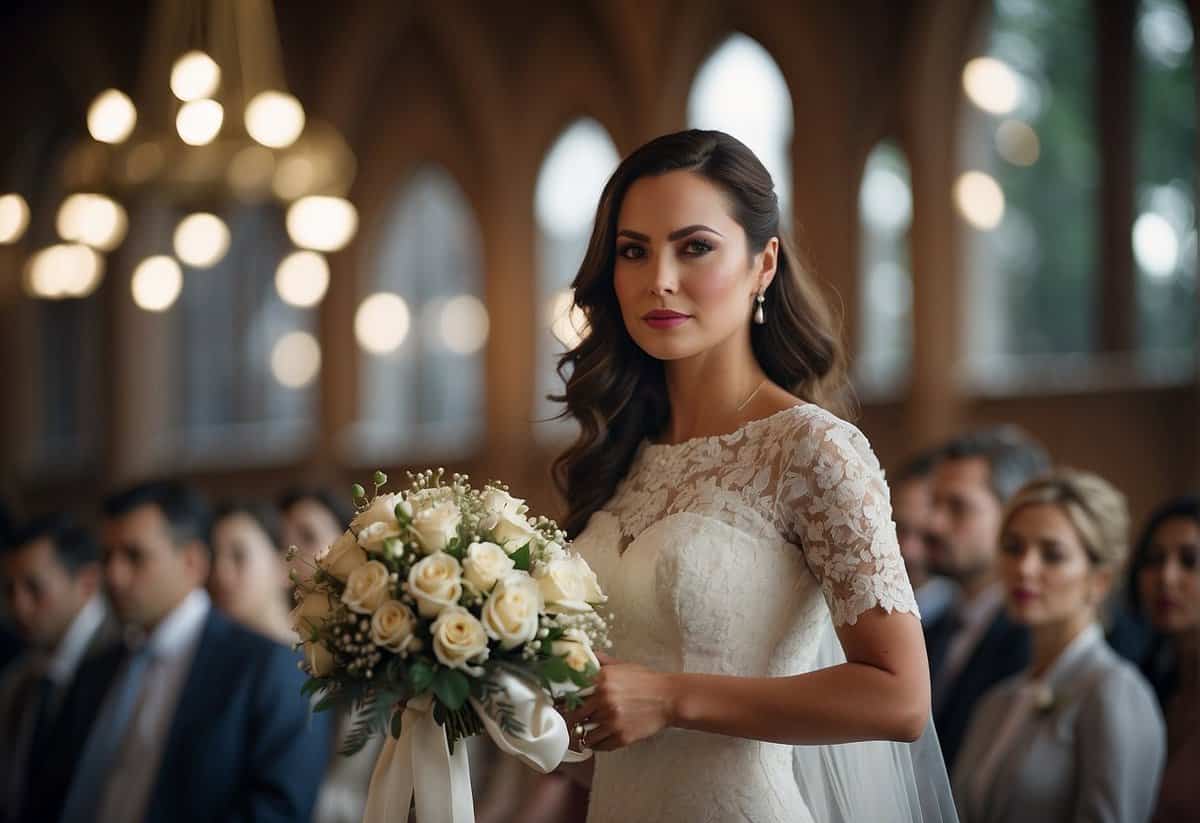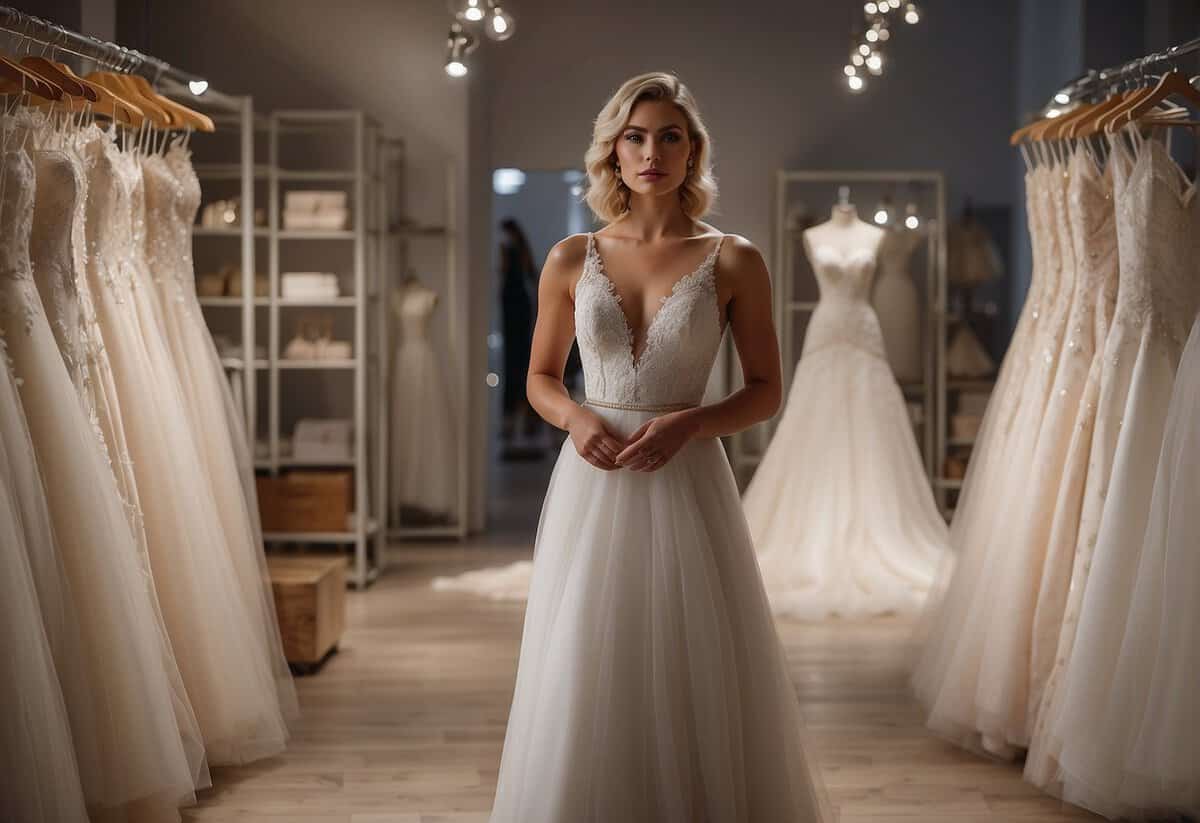Should a Woman Pay for Her Own Wedding? Examining Modern Nuptial Finances
When it comes to weddings, the question of who should bear the cost is often discussed with great interest. Traditionally, the bride’s family footed the majority of the bill. However, times have changed, and the shift towards equality and fairness in relationships has brought about new norms in the realms of wedding expenses.

As you plan your own wedding, you may wonder if adhering to tradition is the right approach for you. With many couples now opting to share the financial responsibilities, the approach to budgeting for your big day has become a personal choice that reflects both your financial realities and your values as a couple.
Key Takeaways
- Traditionally, the bride’s family would pay, but norms are evolving.
- Couples often share wedding expenses to reflect shared financial responsibility.
- Budgeting for the wedding should align with your individual financial situations and values.
Deciding Who Pays for the Wedding

When planning your special day, understanding who traditionally foots the bill and how modern practices may influence this can ensure a financially fair celebration.
Traditional vs. Modern Approaches
Traditional cost breakdowns for weddings typically suggest that the bride’s family assumes responsibility for a large portion of the expenses. This often includes the ceremony and reception costs. However, in current times, such heteronormative gender roles are less rigid. Same-sex couples and those who prefer a more modern approach might opt for a more egalitarian split, where the couple may pay for their wedding entirely or share costs with both sides of the family.
Discussing Budget with Family
It’s crucial that you have a discussion about who pays for the wedding early on. This conversation should ideally be open and respectful. Don’t shy away from laying out expectations and limitations. Funds can come from the bride’s family, the groom’s family, the couple themselves, or a combination thereof. It’s essential to agree on a budget that aligns with everyone’s financial situations and willingness to contribute.
Roles of the Bride and Groom
Traditionally, the groom’s family may pay for certain elements like the rehearsal dinner and the bride’s bouquet, representing their involvement in the celebration. However, as wedding etiquette evolves, the roles of the bride and groom in covering wedding costs also change. Many now view the responsibilities as jointly held, with each contributing to different parts of the event or deciding to equally split costs to reflect their partnership.
Planning the Wedding Budget

When you’re planning for your big day, understanding and managing your wedding budget is crucial. You’ll need to assess your finances, set priorities for your spending, and look for ways to make your dream wedding fit within your means.
Creating a Big-Picture Financial Plan
Before diving into the details, it’s essential to create a big-picture financial plan. Start by calculating the total amount you’re willing to spend on your wedding. This might involve discussing contributions from family members or determining how much you and your partner can save by your target date. Keep in mind that the average cost of a wedding can vary significantly based on location, size, and style.
- Total Wedding Budget: Estimate your total budget, including savings and any family contributions.
- Anticipated Expenses: List out potential wedding-related expenses to get an overview of where the money might go.
Prioritizing Wedding Expenses
Next, decide what parts of your wedding are most important to you. Is it the venue, the food, or maybe the photography? Prioritizing these will help you allocate a larger portion of your budget to what matters most.
- Must-Haves: Bold the elements you absolutely want, like a professional photographer.
- Nice-to-Haves: Italicize items that are negotiable, such as an extensive floral arrangement.
Exploring Cost-Saving Options
Finally, consider how you can reduce expenses without compromising your vision. This might mean adjusting your guest list, selecting a less popular wedding date, or DIY-ing some decorations.
- Reduce Guest List: Less guests mean reduced costs on food and space.
- Off-Peak Season: Booking your wedding in an off-peak season can significantly lower venue costs.
Remember, careful planning and creativity can often lead to the most memorable, yet budget-friendly, weddings.
The Costs Beyond the Ceremony

When planning your wedding, remember that expenses can extend well past the day itself. These can range from catering and photos to what comes after you say “I do.”
Catering, Photography, and Extras
Catering: A critical element that sets the tone for your celebration is the food. This is not just the main meal, but also the appetizers, drinks, and any late-night snacks you may want to offer.
Photography: Your special moments need to be captured with care. Outside of the actual photography services, consider the costs of additional sessions, like engagement shoots, or extras like photo albums.
Wedding Cake: Often a centerpiece of the reception, wedding cakes are a traditional expense. Prices vary widely depending on the size, design, and flavor.
Extras: Don’t forget the wedding dress or attire, which includes not just the gown but also alterations, accessories, and sometimes the attire for the wedding party.
Post-Wedding Expenses
Rehearsal Dinner and Wedding Planner: Besides the wedding itself, you may be hosting a rehearsal dinner, which is another event to budget for. Often a wedding planner can help schedule and manage these events, but their services will add to your budget.
Honeymoon: After the festivities, comes the getaway. Your honeymoon could range from a simple road trip to an exotic destination, and you’ll want to account for travel, accommodation, and activities.
Wedding Gifts: It’s customary to provide gifts for your wedding party as a token of your appreciation, adding another line item to your budget.
Remember to consider the logistics of the day, including transportation for yourselves and possibly your guests, as well as accommodations for anyone traveling from out of town. Wedding rings and invitations also warrant careful consideration. Each choice you make should reflect your personal style and the unique celebration you’re planning.
Addressing the Cost of Wedding Attire and Accessories

When planning your wedding, the attire and accessories can be a significant part of your budget. It’s essential to understand the typical expenses and how they might be divided among the people involved.
Choosing Attire and Accessories
When you select your wedding dress, it’s not just the tag price you need to consider. Think about alterations, undergarments, and any jewelry (excluding the engagement ring) you plan to wear. These items can add up quickly. Similarly, the groom’s attire may include the suit or tuxedo, tie, pocket square, and shoes. Don’t forget about corsages and boutonnières for the wedding party, which traditionally match your color scheme.
Costs for the Bridal Party
Costs for the bridesmaids and groomsmen often include their dresses and suits, respectively. It’s increasingly common for the bridal party to pay for their attire. However, if you’re opting for specific, costly outfits, consider contributing or covering the expense, as a gesture of appreciation. Accessories like jewelry for bridesmaids or cufflinks for groomsmen can also be given as gifts—ensuring a uniform look while giving them something to keep.
Frequently Asked Questions

In exploring the modern landscape of wedding financing, you’ll find that there’s a blend of tradition and contemporary practices at play. Whether you’re considering shouldering the costs yourself, understanding the nuances is key.
Is it common for brides to finance their own weddings nowadays?
Yes, many brides now choose to pay for their weddings, either entirely or by contributing significantly alongside their partners. This shift reflects changes in societal norms and financial independence.
What are the expectations for who should cover the wedding costs in modern marriages?
Expectations vary widely; however, it’s increasingly accepted that couples will share the costs. In some cases, family members may also choose to contribute, but it’s no longer a strict obligation.
How often do couples pay for their own wedding versus receiving family assistance?
Couples often pay for a significant portion of their wedding expenses, though many still receive varying degrees of family assistance, which can depend on their financial situation, cultural background, and personal preferences.
Are parents still traditionally responsible for wedding expenses?
While parents have been traditionally responsible for wedding costs, it’s more common now for these expenses to be shared. It’s important to have open conversations with parents to understand their willingness and ability to contribute.
What factors should couples consider when deciding on their wedding’s financial arrangements?
Factors include your financial stability, cultural expectations, personal values, and the size and style of the wedding you desire. Being clear on these points can guide you in creating a budget that works for everyone involved.
How do personal finances impact the decision on who should pay for the wedding components like the dress or venue?
Your personal finances play a significant role in who pays for what. If you or your partner have the means to cover particular cost elements, such as the dress or venue, it may factor into the overall financial plan for your wedding.



